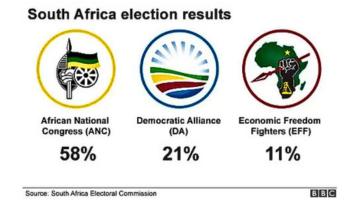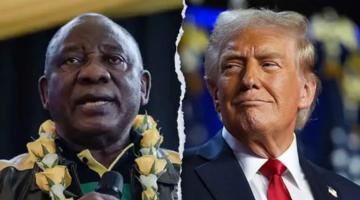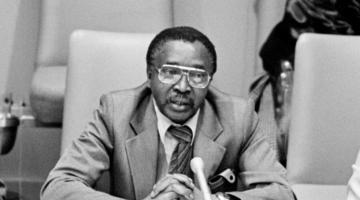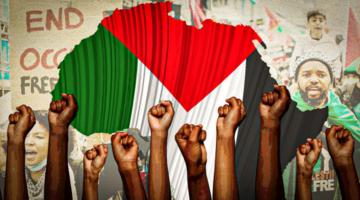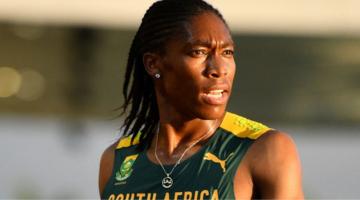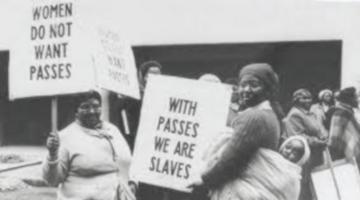Steve Biko long ago diagnosed the pathological cruelty and rot of white society.
The martyred anti-Apartheid activist Bantu Stephen Biko’s “White Racism and Black Consciousness” is not only relevant today because of its sharp insights into the twisted psychology of the cretin behind the rotting U.S. throne: that fascist tech-cuck, government freeloader, weirdo racist neo-Boer Elon Musk. But these insights, nonetheless, are critical. Indeed, when Biko writes of the white South Africans’ white supremacist death drive – with their insatiable desire for destruction, their greed and cruelty and, at bottom, their seemingly biological tendency for race hatred – Biko may as well have been writing a modern-day clinical diagnosis for Musk himself.
Yet Bantu’s diagnosis is not merely of a personality, but of a culture. And it is not merely the culture of South Africa during the peak years of Apartheid, but of all white racist states – that is, of all white societies. Biko’s analysis here is stunning. Biko provides sober analysis about the intractability of white supremacy in white societies, stretching from the most extremist racists to the white progressives and radicals.
Biko ends with advice for Black people: shed Black-white dependency, and build Black political power through Black Consciousness. It’s an old idea – but Biko’s is a message whose time has come:
We have in us the will to live through these trying times; over the years we have attained moral superiority over the white man; we shall watch as time destroys his paper castles and know that all these little pranks were but frantic attempts of frightened little people to convince each other that they can control the minds and bodies of indigenous people of Africa indefinitely.
We reprint Bantu Stephen Biko’s “White Racism and Black Consciousness” below.
White Racism and Black Consciousness
Stephen Bantu Biko
The Totality of White Power in South Africa
"No race possesses the monopoly of beauty, intelligence, force, and there is room for all of us at the rendezvous of victory." I do not think Aimé Césaire was thinking about South Africa when he said these words. The whites in this country have placed themselves on a path of no return. So blatantly exploitative in terms of the mind and body is the practice of white racism that one wonders if the interests of blacks and whites in this country have not become so mutually exclusive as to exclude the possibility of there being "room for all of us at the rendezvous of victory."
The white man's quest for power has led him to destroy with utter ruthlessness whatever has stood in his way. In an effort to divide the black world in terms of aspirations, the powers that be have evolved a philosophy that stratifies the black world and gives preferential treatment to certain groups. Further, they have built up several tribal cocoons, thereby hoping to increase inter-tribal ill-feeling and to divert the energies of the black people towards attaining false prescribed “freedoms.” Moreover, it was hoped, the black people could be effectively contained in these various cocoons of repression, euphemistically referred to as “homelands.” At some stage, however, the powers that be had to start defining the sphere of activity of these apartheid institutions. Most blacks suspected initially the barrenness of the promise and have now realised that they have been taken for a big ride. Just as the Native Representative Council became a political flop that embarrassed its creators, I predict that a time will come when these stooge bodies will prove very costly not only in terms of money but also in terms of the credibility of the story the Nationalists are trying to sell. In the meantime the blacks are beginning to realise the need to rally around the cause of their suffering – their black skin – and to ignore the false promises that come from the white world.
Then again the progressively sterner legislation that has lately filled the South African statute books has had a great effect in convincing the people of the evil inherent in the system of apartheid. No amount of propaganda on Radio Bantu or promises of freedom being granted to some desert homeland will ever convince the blacks that the government means well, so long as they experience manifestations of the lack of respect for the dignity of man and for his property as shown during the mass removals of Africans from the urban areas. The unnecessary harassment of Africans by police, both in towns and inside townships, and the ruthless application of that scourge of the people, the pass laws, are constant reminders that the white man is on top and that the blacks are only tolerated---with the greatest restraints. Needless to say, anyone finding himself at the receiving end of such deliberate (though uncalled for) cruelty must ultimately ask himself the question: what do I have to lose? This is what the blacks are beginning to ask themselves.
To add to this, the opposition ranks have been thrown into chaos and confusion. All opposition parties have to satisfy the basic demands of politics. They want power and at the same time they want to be fair. It never occurs to them that the surest way of being unfair is to withhold power from the native population. Hence one ultimately comes to the conclusion that there is no real difference between the United Party and the Nationalist Party. If there is, a strong possibility exists that the United Party is on the right of the Nationalists. One needs only to look at their famous slogan, "White supremacy over the whole of South Africa," to realise the extent to which the quest for power can cloud even such supposedly immortal characteristics as the "English sense of fair play." Africans long ago dismissed the United Party as a great political fraud. The Coloured people have since followed suit. If the United Party is gaining any votes at all it is precisely because it is becoming more explicit in its racist policy. I would venture to say that the most overdue political step in South African White politics is a merger between the United and Nationalist Parties.
The flirtation between the Progressive Party and blacks was brought to a rude stop by legislation. Some blacks argue that at that moment the Progressives lost their only chance of attaining some semblance of respectability by not choosing to disband rather than lose their black constituents. Yet I cannot help feeling that the Progressives emerged more purified from the ordeal. The Progressives have never been a black man's real hope. They have always been a white party at heart, fighting for a more lasting way of preserving white values in this southern tip of Africa. It will not be long before the blacks relate their poverty to their blackness in concrete terms. Because of the tradition forced onto the country, the poor people shall always be black people. It is not surprising, therefore, that the blacks should wish to rid themselves of a system that locks up the wealth of the country in the hands of a few. No doubt Rick Turner was thinking of this when he declared that "any black government is likely to be socialist," in his article on "The Relevance of Contemporary Radical Thought."
We now come to the group that has longest enjoyed confidence from the black world – the liberal establishment, including radical and leftist groups. The biggest mistake the black world ever made was to assume that whoever opposed apartheid was an ally. For a long time the black world has been looking only at the governing party and not so much at the whole power structure as the object of their rage. In a sense the very political vocabulary that the blacks have used has been inherited from the liberals. Therefore it is not surprising that alliances were formed so easily with the liberals.
Who are the liberals in South Africa? It is that curious bunch of non-conformists who explain their participation in negative terms; that bunch of do-gooders that goes under all sorts of names – liberals, leftists, etc. These are the people who argue that they are not responsible for white racism and the country's "inhumanity to the black man"; these are the people who claim that they too feel the oppression just as acutely as the blacks and therefore should be jointly involved in the black man's struggle for a place under the sun; in short, these are the people who say that they have black souls wrapped up in white skins. The liberals set about their business with the utmost efficiency. They made it a political dogma that all groups opposing the status quo must necessarily be non-racial in structure. They maintained that if you stood for a principle of non-racialism you could not in any way adopt what they described as racialist policies. They even defined to the black people what the latter should fight for.
With this sort of influence behind them, most black leaders tended to rely too much on the advice of liberals. For a long time, in fact, it became the occupation of the leadership to “calm the masses down,” while they engaged in fruitless negotiation with the status quo. Their whole political action, in fact, was a programmed course in the art of gentle persuasion through protests and limited boycotts and they hoped the rest could be safely left to the troubled conscience of the fair-minded English folk.
Of course this situation could not last. A new breed of black leaders was beginning to take a dim view of the involvement of liberals in a struggle that they regarded as essentially theirs, when the political movements of the blacks were either banned or harassed into non-existence. This left the stage open once more for the liberals to continue with their work of “fighting for the rights of the blacks.”
It never occurred to the liberals that the integration they insisted upon as an effective way of opposing apartheid was impossible to achieve in South Africa. It had to be artificial because it was being foisted on two parties whose entire upbringing had been to support the lie that one race was superior and others inferior. One has to overhaul the whole system in South Africa before hoping to get black and white walking hand in hand to oppose a common enemy. As it is, both black and white walk into a hastily organised integrated circle carrying with them the seeds of destruction of that circle---their inferiority and superiority complexes.
The myth of integration as propounded under the banner of the liberal ideology must be cracked and killed because it makes people believe that something is being done when in reality the artificially integrated circles are a soporific to the blacks while saving the consciences of the guilt-stricken white. It works from the false premise that, because it is difficult to bring people from different races together in this country, achievement of this is in itself a step towards the total liberation of the blacks. Nothing could be more misleading.
How many white people fighting for their version of a change in South Africa are really motivated by genuine concern and not by guilt? Obviously it is a cruel assumption to believe that all whites are not sincere, yet methods adopted by some groups often do suggest a lack of real commitment. The essence of politics is to direct oneself to the group which wields power. Most white dissident groups are aware of the power wielded by the white power structure. They are quick to quote statistics on how big the defence budget is. They know exactly how effectively the police and the army can control protesting black hordes---peaceful or otherwise. They know to what degree the black world is infiltrated by the security police. Hence they are completely convinced of the impotence of the black people. Why then do they persist in talking to the blacks? Since they are aware that the problem in this country is white racism, why do they not address themselves to the white world? Why do they insist on talking to blacks?
In an effort to answer these questions one has to come to the painful conclusion that the liberal is in fact appeasing his own conscience, or at best is eager to demonstrate his identification with the black people only so far as it does not sever all his ties with his relatives on the other side of the colour line. Being white, he possesses the natural passport to the exclusive pool of white privileges from which he does not hesitate to extract whatever suits him. Yet, since he identifies with the blacks, he moves around his white circles – white-only beaches, restaurants, and cinemas – with a lighter load, feeling that he is not like the rest. Yet at the back of his mind is a constant reminder that he is quite comfortable as things stand and therefore should not bother about change. Although he does not vote for the Nationalists (now that they are in the majority anyway), he feels secure under the protection offered by the Nationalists and subconsciously shuns the idea of change.
The limitations that have accompanied the involvement of liberals in the black man's struggle have been mostly responsible for the arrest of progress. Because of their inferiority complex, blacks have tended to listen seriously to what the liberals had to say. With their characteristic arrogance of assuming a “monopoly on intelligence and moral judgement,” these self-appointed trustees of black interests have gone on to set the pattern and pace for the realisation of the black man's aspirations.
I am not sneering at the liberals and their involvement. Neither am I suggesting that they are the most to blame for the black man's plight. Rather I am illustrating the fundamental fact that total identification with an oppressed group in a system that forces one group to enjoy privilege and to live on the sweat of another, is impossible. White society collectively owes the blacks so huge a debt that no one member should automatically expect to escape from the blanket condemnation that needs must come from the black world. It is not as if whites are allowed to enjoy privilege only when they declare their solidarity with the ruling party. They are born into privilege and are nourished by and nurtured in the system of ruthless exploitation of black energy. For the 20-year-old white liberal to expect to be accepted with open arms is surely to overestimate the powers of forgiveness of the black people. No matter how genuine a liberal's motivations may be, he has to accept that, though he did not choose to be born into privilege, the blacks cannot but be suspicious of his motives.
The liberal must fight on his own and for himself. If they are true liberals they must realise that they themselves are oppressed, and that they must fight for their own freedom and not that of the nebulous 'they' with whom they can hardly claim identification.
What I have tried to show is that in South Africa political power has always rested with white society. Not only have the whites been guilty of being on the offensive but, by some skilful manoeuvres, they have managed to control the responses of the blacks to the provocation. Not only have they kicked the black but they have also told him how to react to the kick. For a long time the black has been listening with patience to the advice he has been receiving on how best to respond to the kick. With painful slowness he is now beginning to show signs that it is his right and duty to respond to the kick in the way he sees fit.
Black Consciousness
"We Coloured men, in this specific moment of historical evolution, have consciously grasped in its full breath, the notion of our peculiar uniqueness, the notion of just who we are and what, and that we are ready, on every plane and in every department, to assume the responsibilities which proceed from this coming into consciousness. The peculiarity of our place in the world is not to be confused with anyone else's. The peculiarity of our problems which aren't to be reduced to subordinate forms of any other problem. The peculiarity of our history, laced with terrible misfortunes which belong to no other history. The peculiarity of our culture, which we intend to live and to make live in an ever realler manner.”
Aimé Césaire, 1956, in his letter of resignation from the French Communist Party
At about the same time that Césaire said this, there was emerging in South Africa a group of angry young black men who were beginning to “grasp the notion of (their) peculiar
uniqueness” and who were eager to define who they were and what. These were the elements who were disgruntled with the direction imposed on the African National Congress by the “old guard” within its leadership. These young men were questioning a number of things, among which was the “go slow” attitude adopted by the leadership, and the ease with which the leadership accepted coalitions with organisations other than those run by blacks. The “People's Charter” adopted in Kliptown in 1955 was evidence of this. In a sense one can say that these were the first real signs that the blacks in South Africa were beginning to realise the need to go it alone and to evolve a philosophy based on, and directed by, blacks. In other words, Black Consciousness was slowly manifesting itself.
It may be said that, on the broader political front, blacks in South Africa have not shown any overt signs of new thinking since the banning of their political parties; not were the signs of disgruntlement with the white world given a real chance to crystallise into a positive approach. Black students, on the other hand, began to rethink their position in black-white coalitions. The emergence of SASO [South African Students' Organisation] and its tough policy of non-involvement with the white world set people's minds thinking along new lines. This was a challenge to the age-old tradition in South Africa that opposition to apartheid was enough to qualify whites for acceptance by the black world. Despite protest and charges of racialism from liberal-minded white students, the black students stood firm in their rejection of the principle of unholy alliances between blacks and whites.A spokesman of the new right-of-middle group, NAFSAS, was treated to a dose of the new thinking when a black student told him that “we shall lead ourselves, be it to the sea, to the mountain or to the desert; we shall have nothing to do with white students.”
The importance of the SASO stand is not really to be found in SASO per se--for SASO has the natural limitations of being a student organisation with an ever-changing membership. Rather it is to be found in the fact that this new approach opened a huge crack in the traditional approach and made the blacks sit up and think again. It heralded a new era in which blacks are beginning to take care of their own business and to see with greater clarity the immensity of their responsibility.
The call for Black Consciousness is the most positive call to come from any group in the black world for a long time. It is more than just a reactionary rejection of whites by blacks. The quintessence of it is the realisation by the blacks that, in order to feature well in this game of power politics, they have to use the concept of group power and to build a strong foundation for this. Being an historically, politically, socially and economically disinherited and dispossessed group, they have the strongest foundation from which to operate. The philosophy of Black Consciousness, therefore, expresses group pride and the determination by the blacks to rise and attain the envisaged self. At the heart of this kind of thinking is the realisation by the blacks that the most potent weapon in the hands of the oppressor is the mind of the oppressed. Once the latter has been so effectively manipulated and controlled by the oppressor as to make the oppressed believe that he is a liability to the white man, then there will be nothing the oppressed can do that will really scare the powerful masters. Hence thinking along lines of Black Consciousness makes the black man see himself as a being, entire in himself, and not as an extension of a broom or additional leverage to some machine. At the end of it all, he cannot tolerate attempts by anybody to dwarf the significance of his manhood. Once this happens, we shall know that the real man in the black person is beginning to shine through.
I have spoken of Black Consciousness as if it is something that can be readily detected. Granted this may be an over-statement at this stage, yet it is true that, gradually, the various black groups are becoming more and more conscious of the self. They are beginning to rid their minds of imprisoning notions which are the legacy of the control of their attitude by whites. Slowly, they have cast aside the “morality argument” which prevented them from going it alone and are now learning that a lot of good can be derived from specific exclusion of whites from black institutions.
Of course it is not surprising to us that whites are not very much aware of these developing forces since such consciousness is essentially an inward-looking process. It has become common practice in this country for people to consult their papers to see what is said by black leaders---by which they understand the leaders of the various apartheid institutions. While these bodies are often exploited by individuals in them for candid talking, they certainly cannot be taken seriously as yardsticks by which to measure black feeling on any topic.
The growth of awareness among South African blacks has often been ascribed to influence from the American “Negro' movement”. Yet it seems to me that this is a sequel to the attainment of independence by so many African states within so short a time. In fact I remember that at the time I was at high school, Dr Hastings Kamuzu Banda was still a militant and used to be a hero of a friend of mine. His often quoted statement was, “This is a black man's country; any white man who does not like it must pack up and go.” Clearly at this stage the myth of the invincibility of the white man had been exposed. When fellow Africans were talking like that how could we still be harbouring ideas of continued servitude? We knew he had no right to be there; we wanted to remove him from our table, strip the table of all trappings put on it by him, decorate it in true African style, settle down and then ask him to join us on our own terms if he liked. This is what Banda was saying. The fact that American terminology has often been used to express our thoughts is merely because all new ideas seem to get extensive publicity in the United States.
National consciousness and its spread in South Africa has to work against a number of factors. First there are the traditional complexes, then the emptiness of the native's past and lastly the question of black-white dependency. The traditional inferior-superior black-white complexes are deliberate creations of the colonialist. Through the work of missionaries and the style of education adopted, the blacks were made to feel that the white man was some kind of god whose word could not be doubted. As Fanon puts it: “Colonialism is not satisfied merely with holding a people in its grip and emptying the Native's brain of all form and content; by a kind of perverted logic, it turns to the past of the oppressed people and distorts, disfigures, and destroys it.” At the end of it all, the blacks have nothing to lean on, nothing to cheer them up at the present moment and very much to be afraid of in the future.
The attitude of some rural African folk who are against education is often misunderstood, not least by the African intellectual. Yet the reasons put forward by these people carry with them the realisation of their inherent dignity and worth. They see education as the quickest way of destroying the substance of the African culture. They complain bitterly of the disruption in the life pattern, nonobservation of customs, and constant derision from the nonconformists whenever any of them go through school. Lack of respect for the elders is, in the African tradition, an unforgivable and cardinal sin. Yet how can one prevent the loss of respect of child for father when the child is actively taught by his know-all white tutors to disregard his family's teachings? How can an African avoid losing respect for his tradition when in school his whole cultural background is summed up in one word: barbarism?
To add to the white-oriented education received, the whole history of the black people is presented as a long lamentation of repeated defeats. Strangely enough, everybody has come to accept that the history of South Africa starts in 1652. No doubt this is to support the often-told lie that blacks arrived in this country at about the same time as the whites. Thus, a lot of attention has to be paid to our history if we as blacks want to aid each other in ourcoming into consciousness. We have to rewrite our history and describe in it the heroes that formed the core of resistance to the white invaders. More has to be revealed and stress has to be laid on the successful nation building attempts by people like Chaka, Moshoeshoe and Hintsa.
Our culture must be defined in concrete terms. We must relate the past to the present and demonstrate an historical evolution of the modern African. We must reject the attempts by the powers that be to project an arrested image of our culture. This is not the sum total of our culture. They have deliberately arrested our culture at the tribal stage to perpetuate the myth that African people were near cannibals, had no real ambitions in life, and were preoccupied with sex and drink. In fact the wide-spread vice often found in the African townships is a result of the interference of the White man in the natural evolution of the true native culture. “Wherever colonisation is a fact, the indigenous culture begins to rot and among the ruins something begins to be born which is condemned to exist on the margin allowed it by the European culture.” It is through the evolution of our genuine culture that our identity can be fully rediscovered.
We must seek to restore to the black people a sense of the great stress we used to lay on the value of human relationships; to highlight the fact that in the pre-Van Riebeeck days we had a high regard for people, their property and for life in general; to reduce the hold of technology over man and to reduce the materialistic element that is slowly creeping into the African character. “Is there any way that my people can have the blessings of technology without being eaten away by materialism and losing the spiritual dimension from their lives?” asks President Kaunda and then, talking of the typical tribal African community, he says:
Those people who are dependent upon and live in closest relationship with Nature are most conscious of the operation of these forces: the pulse of their lives beats in harmony with the pulse of the Universe; they may be simple and unlettered people and their horizons may be strictly limited, yet I believe that they inhabit a larger world than the sophisticated Westerner who has magnified his physical senses through invented gadgets at the price, all too often, of cutting out the dimension of the spiritual.
It goes without saying that the black people of South Africa, in order to make the necessary strides in the new direction they are thinking of, have to take a long look at how they can use their economic power to their advantage. As the situation stands today, money from the black world tends to take a unidirectional flow to the white society. Blacks buy from white supermarkets, white greengrocers, white bottle stores, white chemists, and, to crown it all, those who can, bank at white-owned banks. Needless to say, they travel to work in government-owned trains or white-owned buses. If then we wish to make use of the little we have to improve our lot, it can only lead to greater awareness of the power we wield as a group. The 'Buy Black' campaign that is being waged by some people in the Johannesburg area must not be scoffed at.
It is often claimed that the advocates of Black Consciousness are hemming themselves in into a closed world, choosing to weep on each other's shoulders and thereby cutting out useful dialogue with the rest of the world. Yet I feel that the black people of the world, in choosing to reject the legacy of colonialism and white domination and to build around themselves their own values, standards and outlook to life, have at last established a solid base for meaningful cooperation amongst themselves in the larger battle of the Third World against the rich nations. As Fanon puts it; “The consciousness of the self is not the closing of a door to communication. ... National consciousness, which is not nationalism, is the only thing that will give us an international dimension.” This is an encouraging sign, for there is no doubt that the black-white power struggle in South Africa is but a microcosm of the global confrontation between the Third World and the rich white nations of the world which is manifesting itself in an ever more real manner as the years go by.
Thus, in this age and day, one cannot but welcome the evolution of a positive outlook in the black world. The wounds that have been inflicted on the black world and the accumulated insults of oppression over the years were bound to provoke reaction from the black people. Now we can listen to the Barnett Potters concluding with apparent glee and with a sense of sadistic triumph that the fault with the black man is to be found in his genes, and we can watch the rest of the white society echoing “amen,” and still not be moved to the reacting type of anger. We have in us the will to live through these trying times; over the years we have attained moral superiority over the white man; we shall watch as time destroys his paper castles and know that all these little pranks were but frantic attempts of frightened little people to convince each other that they can control the minds and bodies of indigenous people of Africa indefinitely.
Bantu Stephen Biko (18 December 1946 – 12 September 1977), “White Racism and Black Consciousness,” was first delivered at a student conference sponsored by the Abe Bailey Institute for Inter-racial Studies and held Cape Town in January 1971. Bantu’s paper was subsequently published in Student Perspectives on South Africa (1972), edited by Hendrik W. van der Merwe and David Welsh, and reprinted in the collection of Biko’s writings, I Write What I Like, published in 1979 as part of Heinemann’s African Writers Series.

